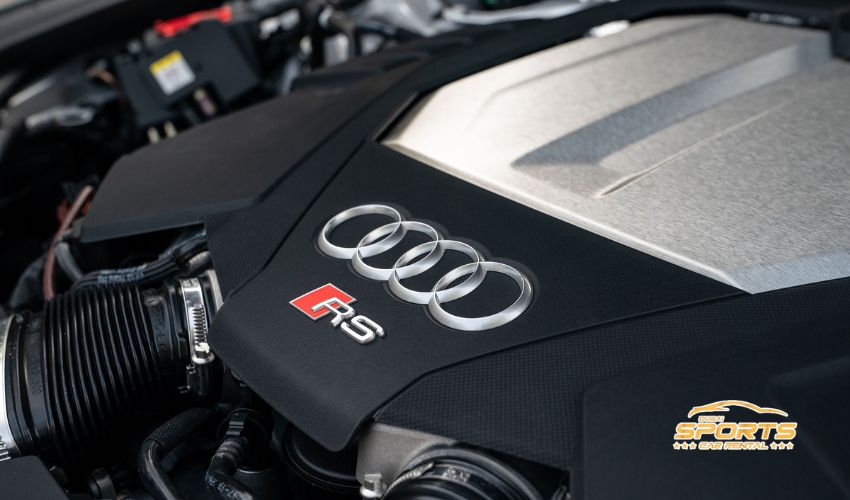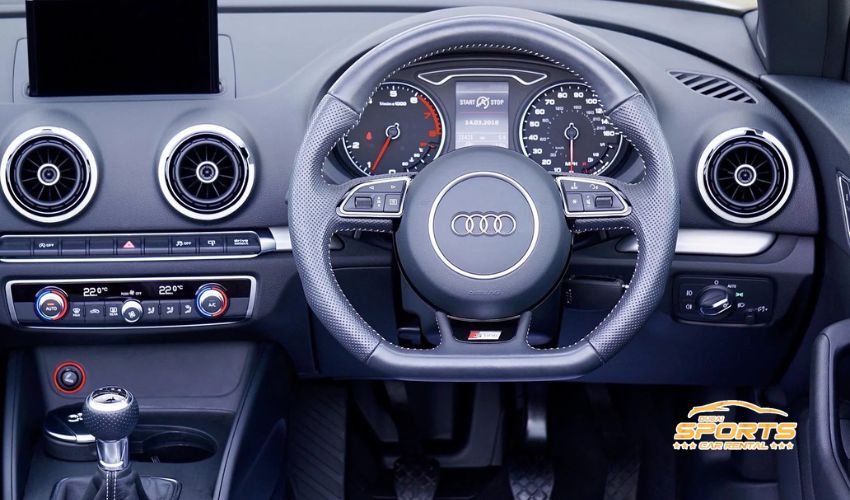Common Causes of the EPC Light
- Throttle body issues
- Brake pedal switch failure
- ABS sensor problems
- Wiring and electrical issues
Throttle Body Issues
The throttle body controls the quantity of air entering Audi’s engine. Carbon deposits can accumulate over time, leading to the sticking of the throttle plate. Sometimes, it can cause malfunctions and other problems like poor acceleration, erratic idling, and EPC light activation.
Audi Mechanics or technicians use specialized cleaners to remove carbon deposits. Usually, they replace the throttle body, especially if it has severe damage.
Brake Pedal Switch Failure
When you press the brake pedal, the switch signals the ECU. However, if the switch has a fault, it may send incorrect signals, causing the EPC light to turn on. Keep in mind that this problem severely affects your Audi’s cruise control and brake lights.
A professional mechanic can fix the issue. Diagnostics involves checking the switch thoroughly; the mechanic will replace it if it has significant faults. Audi is among the fastest sports cars, and it is important to thoroughly check the brake pedal switch to maintain your vehicle’s optimal performance.
ABS Sensor Problems
When an ABS sensor fails, it turns on the EPC light on the dashboard of the Audi car. As a result, it does not monitor the wheel speed and prevents data from reaching the ECU, causing wheel lock-up during braking.
If you experience such an issue, make sure you consult an experienced mechanic because they use advanced tools to read fault codes and detect the faulty sensor.
Wiring and Electrical Issues
The EPC system receives signals from a network of sensors and wiring to function optimally. Corrosion or damage in the wiring can prevent signals from reaching the EPC, causing the light to illuminate on the dashboard.
If the problem is due to loose connections, there is no need to replace the wiring because the mechanic can fix this issue quickly. Soldering broken wires doesn’t work if there are severe wear and tear and damage.
Symptoms of EPC Light Activation

The first symptom is reduced engine power, resulting in poor acceleration and sluggish speed. Another symptom is the unresponsive throttle, causing delayed reactions when pressing the accelerator.
Engine stalling and misfiring are also symptoms of EPC light activation in Audi cars. If these issues occur intermittently, make sure you take your car to the mechanic. Otherwise, your Audi car will experience sudden stops or rough idling. Remember, this can further damage the ignition system.
Can You Diagnose EPC Light Issues Yourself?
You can diagnose EPC light issues yourself to some extent. However, this requires thorough knowledge and the right tools. As an Audi enthusiast myself, I recommend the following diagnostic steps:
- Buy an OBD-II scanner to read the DTC from your Audi’s ECU. DTCs stand for diagnostic trouble codes. The tool can help you identify the issue.
- The second step is inspecting the throttle body and checking for carbon accumulation. The problem may be due to mechanical issues if there is no buildup.
- Next, inspect the brake pedal switch and ensure it functions correctly. Use a multimeter to test the faulty switch on your Audi.
- Inspect ABS sensors to see whether they have visible damage or disconnection. Audi has these sensors near the wheels, and you can use the diagnostic tools to check the sensors. Sometimes, you can visually check them (if you have good knowledge).
- Examine wiring and connection, and if you find any loose, damaged, or corroded wiring/connectors, take your Audi to the mechanic because you can’t fix them yourself. Even if you have reasonable knowledge, you may damage the engine bay. Therefore, it is essential to take your car to the mechanic.
Final Words About EPC on Audi
I have answered the question and discussed other details about “what does EPC mean on Audi.” The important thing to remember is to keep the throttle body clean and ensure the brake system functions properly. Regularly check your Audi’s electrical systems to prevent this issue.



